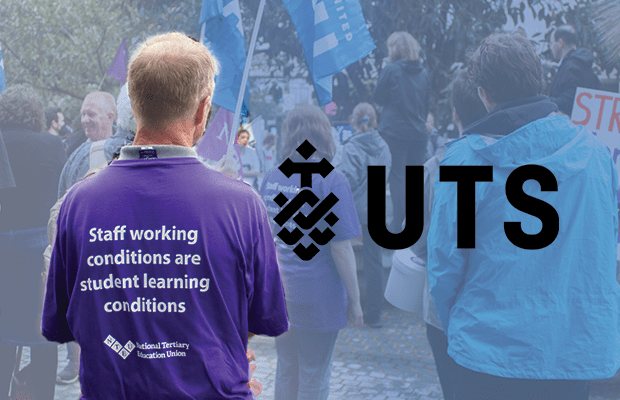Staff at the University of Technology Sydney (UTS) have voted yesterday to authorise any possible future protected industrial action as part of their negotiations for a new enterprise bargaining agreement.
In a protected action ballot, 97 per cent of National Tertiary Education Union (NTEU) members from the UTS branch voted in favour of authorising action.
The majority vote will allow NTEU members to vote to escalate their negotiations and take protected industrial action such as going on strike.
“The UTSSA is thrilled to see the overwhelming vote ‘Yes’ by NTEU members for industrial action in the recent ballot. We are hoping to see strong support in the union for a strike with full suspension of classes and work stoppage for 24 hours and beyond until their demands are won,” said UTS Students’ Association (UTSSA) President Anna Thieben.
“A lot of the casual jobs that have been cut are also students such as PhD students who teach tutorials and undergraduate students who work in front facing marketing to recruit high schoolers and support students on campus. So when we talk about job insecurity we also talk about students at this university with precarious livelihoods,” Thieben said.
“As students we are committed to standing beside staff on the picket line. Their working conditions are intrinsically linked to the quality of our education and it is amazing that staff and students at this university are joining together to demand better conditions for all.”
Other Sydney universities have also recently taken industrial action, including staff at Western Sydney University on strike today, and the University of Sydney, who participated in a historic 3-day strike over May.
Similar to staff at other universities, UTS staff are campaigning for better job security, including increased protections for casual staff, fair and manageable workloads, and commitments to enforceable First Nations targets.
The surge in industrial action from the tertiary education sector coincides with negotiations for new enterprise bargaining agreements between the various NTEU branches and universities, following the expiry of existing agreements.





